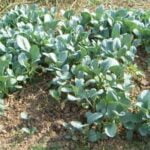Are mothballs safe in vegetable gardens? Mothballs are commonly used as a pest deterrent, but their potential risks and harmful chemicals make them unsuitable for use in vegetable gardens. These small balls of chemical pesticide have the potential to harm both plants and humans. Understanding why using mothballs in a vegetable garden is not safe is essential for maintaining a healthy and thriving organic garden.
Mothballs are known for warding off pests such as moths, cockroaches, and other insects, making them a popular choice for pest control. However, their toxic nature makes them unsuitable for use around edible plants. The harmful chemicals found in mothballs can pose significant risks to both plant life and human health, making it important to explore alternative methods for pest control in vegetable gardens.
In this article, we will delve into the potential dangers of using mothballs in vegetable gardens and explore the impact of harmful chemicals on vegetable plants. Additionally, we will discuss the environmental impact of using mothballs in a garden setting and offer alternative methods for effectively controlling pests while ensuring the safety of both plants and humans.
Potential Risks
Contain Harmful Chemicals
such as naphthalene or paradichlorobenzene. While they are effective at deterring pests such as moths, silverfish, and other insects, they can pose potential risks when used in vegetable gardens.
Impact on Vegetable Plants
The harmful chemicals found in mothballs can be absorbed by the soil and subsequently taken up by vegetable plants. This can lead to contamination of the edible parts of the plant, posing potential health risks to those who consume them. Additionally, these chemicals can also harm beneficial insects and microorganisms in the soil, disrupting the ecosystem of the garden.
Environmental Impact
Another concern regarding the use of mothballs in vegetable gardens is the environmental impact. When these chemicals leach into the soil, they can contaminate groundwater and potentially harm surrounding ecosystems. This can have long-term detrimental effects on local flora and fauna.
Given these potential risks, it is important for gardeners to consider safer alternatives for pest control in their vegetable gardens.
Harmful Chemicals
Mothballs are typically used as a pest deterrent, especially for clothing storage. However, many people wonder if they are safe to use in vegetable gardens to keep pests at bay. While mothballs may seem like a convenient solution for gardeners dealing with plant-eating pests, they pose several potential risks and can have harmful effects on both the plants and the environment.
The primary chemicals found in mothballs are either naphthalene or paradichlorobenzene, both of which are toxic to insects and other animals. When used in a vegetable garden, these chemicals can leach into the soil and be absorbed by the plants. This can negatively impact the quality and safety of the vegetables grown in the garden.
In addition to harming vegetable plants, using mothballs in a garden can also have detrimental effects on the environment. The toxic chemicals in mothballs can contaminate nearby water sources and harm beneficial insects, wildlife, and even household pets. For these reasons, it is crucial for gardeners to seek alternative pest control methods that are safe for both their gardens and the surrounding ecosystem.
| Mothball Chemical | Potential Impact |
|---|---|
| Naphthalene | Can be toxic to insects, animals, and humans; harmful if absorbed by vegetable plants |
| Paradichlorobenzene | Also toxic to insects, animals, and humans; can contaminate soil and water sources |
Environmental Impact
Mothballs are commonly used as a pest deterrent, but are they safe to use in vegetable gardens? Let’s explore the environmental impact of using mothballs in a vegetable garden.
One potential risk of using mothballs in a vegetable garden is the release of harmful chemicals into the environment. Mothballs contain chemicals such as naphthalene or paradichlorobenzene, which can vaporize into the air and leach into the soil. These chemicals can have detrimental effects on the surrounding ecosystem, including soil contamination and harm to beneficial insects.
The environmental impact of using mothballs in a vegetable garden also extends to water sources. When it rains, the harmful chemicals from the mothballs can be washed away and end up polluting nearby water sources, posing a threat to aquatic life. Additionally, these chemicals can persist in the environment for a long time, further contributing to their negative impact.
Alternative Methods for Pest Control:
- Introduce natural predators: Encouraging natural predators like ladybugs or lacewings can help control pests in a vegetable garden without resorting to harmful chemicals.
- Companion planting: Planting certain vegetables and herbs together can help repel pests and protect your crops without the need for mothballs.
- DIY pest sprays: Creating homemade pest sprays using ingredients like garlic, neem oil, or chili pepper can effectively deter pests without harming the environment.
Alternatives to Mothballs
Mothballs have long been used as a pest deterrent, including in vegetable gardens, to keep away insects and other unwanted creatures. However, their use in vegetable gardens can pose potential risks to both the plants and the environment. It is essential for gardeners to explore alternative methods for pest control that are safe and effective.
Harmful Chemicals
One of the main reasons why mothballs are not safe for use in vegetable gardens is due to the harmful chemicals they contain. Mothballs typically contain either naphthalene or paradichlorobenzene, both of which can be toxic to plants. When these chemicals vaporize, they can be absorbed by the surrounding soil and taken up by the plant roots, leading to damage or even death of the plants.
Environmental Impact
In addition to harming vegetable plants, using mothballs in a garden can also have an adverse impact on the environment. As mothballs break down over time, they release their toxic chemicals into the soil and surrounding area. This pollution can harm beneficial insects, wildlife, and even contaminate water sources. Therefore, it is crucial for gardeners to consider the environmental impact of their pest control methods.
Safe Pest Control Methods
Fortunately, there are numerous alternative methods for pest control in vegetable gardens that do not involve the use of mothballs. These include natural solutions such as companion planting, introducing beneficial insects like ladybugs or lacewings, using physical barriers such as row covers or netting, and practicing good gardening practices such as crop rotation and proper sanitation. By utilizing these safe and effective pest control methods, gardeners can protect their vegetables without posing harm to the plants or the environment.
Safe Pest Control Methods
Mothballs are commonly used as a pest deterrent due to their strong odor, but it is important to consider the potential risks associated with using them in vegetable gardens. While they may effectively repel pests, mothballs contain harmful chemicals that can have a detrimental impact on both plant life and the environment. When considering pest control methods for your vegetable garden, it is essential to prioritize the safety of your plants, the environment, and your own health.
Here are some safe and effective pest control methods for vegetable gardens:
- Companion planting: Certain plants can naturally repel pests or attract beneficial insects that help control pests. For example, planting marigolds can deter nematodes, while attracting ladybugs can help control aphids.
- Natural predators: Encouraging natural predators like birds, frogs, and beneficial insects such as ladybugs and lacewings can help keep pests in check without the use of harmful chemicals.
- Neem oil: Neem oil is a natural pesticide derived from the seeds of the neem tree. It works by disrupting the life cycle of pests and can be an effective and safe alternative to chemical pesticides.
- Floating row covers: These covers can be used to physically block pests from accessing your vegetable plants without the need for any chemicals.
These methods not only provide a safer alternative to mothballs but also contribute to a healthier garden ecosystem overall. Prioritizing safe pest control methods will ensure that your vegetable garden thrives without compromising the health of yourself or the environment.
Risks to Human Health
Mothballs are commonly used as a pest deterrent, but are they safe to use in vegetable gardens? Many gardeners may not realize the potential health risks associated with using mothballs in their vegetable plots. The chemicals found in mothballs, such as naphthalene and paradichlorobenzene, can be harmful to both plants and humans.
Naphthalene, one of the main ingredients in mothballs, can cause damage to the nervous system when inhaled or ingested. In a vegetable garden, the chemical can leach into the soil and contaminate the crops, posing a risk to anyone consuming those vegetables. Additionally, paradichlorobenzene can also have adverse effects on human health when exposed over time.
Furthermore, the Environmental Protection Agency (EPA) has classified naphthalene as a possible human carcinogen. This means that long-term exposure to this chemical could potentially increase the risk of developing cancer. Given these potential health risks, it is clear that using mothballs in vegetable gardens is not advisable.
| Chemical | Potential Health Risks |
|---|---|
| Naphthalene | Nervous system damage when inhaled or ingested; possible human carcinogen |
| Paradichlorobenzene | Adverse effects on human health with prolonged exposure |
Conclusion
In conclusion, it is clear that mothballs are not safe for use in vegetable gardens. The potential risks and harmful chemicals found in mothballs can have a negative impact on both the environment and the health of human beings. The environmental impact of using mothballs in a vegetable garden can lead to soil contamination and harm to beneficial insects. Additionally, the health risks associated with exposure to the chemicals found in mothballs are cause for concern.
Given the potential dangers of using mothballs in vegetable gardens, it is important for readers to explore safer alternatives for pest control. There are numerous alternative methods for pest control in vegetable gardens that do not pose the same risks as mothballs. Natural deterrents such as companion planting, beneficial insects, and physical barriers can effectively keep pests at bay without harming the environment or human health.
In summary, while mothballs may be effective at deterring pests, they pose too great a risk to both the environment and human health. It is essential for gardeners to prioritize safety and consider alternative pest control methods when tending to their vegetable gardens. By choosing safer alternatives, gardeners can maintain healthy and thriving gardens without putting themselves or their environment at risk.
Frequently Asked Questions
Is It Safe to Put Mothballs Around Tomato Plants?
It is not safe to put mothballs around tomato plants. Mothballs contain toxic chemicals that can be harmful to both plants and humans. The chemicals can leach into the soil and potentially harm the plant’s growth.
Are Moth Balls Toxic to Soil?
Yes, mothballs are toxic to soil. The chemicals in mothballs, such as naphthalene or paradichlorobenzene, can contaminate the soil and harm beneficial organisms like earthworms. This can disrupt the natural balance of the soil ecosystem.
Can Mothballs Contaminate Food?
Mothballs can definitely contaminate food if not used properly. When stored improperly, mothball fumes can penetrate packaging and affect the food inside, making it unsafe for consumption. It is best to keep mothballs away from areas where food is stored or prepared.

If you’re looking to get into vegetable gardening, or are just looking for some tips on how to make your current garden better, then you’ve come to the right place! My name is Ethel and I have been gardening for years. In this blog, I’m going to share with you some of my best tips on how to create a successful vegetable garden.





